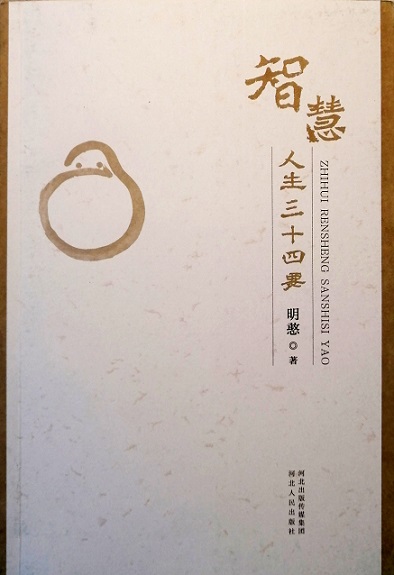"We've come to fetch you. Your lessive lasted a good time today," said Petritsky. "Well, is it over?"
"It is over," answered Vronsky, smiling with his eyes only, and twirling the tips of his mustaches as circumspectly as though after the perfect order into which his affairs had been brought any over-bold or rapid movement might disturb it.
"You're always just as if you'd come out of a bath after it," said Petritsky. "I've come from Gritsky's" (that was what they called the colonel); "they're expecting you."
Vronsky, without answering, looked at his comrade, thinking of something else.
"Yes; is that music at his place?" he said, listening to the familiar sounds of polkas and waltzes floating across to him. "What's the fete?"
"Serpuhovskoy's come."
"Aha!" said Vronsky, "why, I didn't know."
The smile in his eyes gleamed more brightly than ever.
Having once made up his mind that he was happy in his love, that he sacrificed his ambition to it--having anyway taken up this position, Vronsky was incapable of feeling either envious of Serpuhovskoy or hurt with him for not coming first to him when he came to the regiment. Serpuhovskoy was a good friend, and he was delighted he had come.
"Ah, I'm very glad!"
The colonel, Demin, had taken a large country house. The whole party were in the wide lower balcony. In the courtyard the first objects that met Vronsky's eyes were a band of singers in white linen coats, standing near a barrel of vodka, and the robust, good-humored figure of the colonel surrounded by officers. He had gone out as far as the first step of the balcony and was loudly shouting across the band that played Offenbach's quadrille, waving his arms and giving some orders to a few soldiers standing on one side. A group of soldiers, a quartermaster, and several subalterns came up to the balcony with Vronsky. The colonel returned to the table, went out again onto the steps with a tumbler in his hand, and proposed the toast, "To the health of our former comrade, the gallant general, Prince Serpuhovskoy. Hurrah!"
The colonel was followed by Serpuhovskoy, who came out onto the steps smiling, with a glass in his hand.
"You always get younger, Bondarenko," he said to the rosy-checked, smart-looking quartermaster standing just before him, still youngish looking though doing his second term of service.
It was three years since Vronsky had seen Serpuhovskoy. He looked more robust, had let his whiskers grow, but was still the same graceful creature, whose face and figure were even more striking from their softness and nobility than their beauty. The only change Vronsky detected in him was that subdued, continual radiance of beaming content which settles on the faces of men who are successful and are sure of the recognition of their success by everyone. Vronsky knew that radiant air, and immediately observed it in Serpuhovskoy.
As Serpuhovskoy came down the steps he saw Vronsky. A smile of pleasure lighted up his face. He tossed his head upwards and waved the glass in his hand, greeting Vronsky, and showing him by the gesture that he could not come to him before the quartermaster, who stood craning forward his lips ready to be kissed.
"Here he is!" shouted the colonel. "Yashvin told me you were in one of your gloomy tempers."
Serpuhovskoy kissed the moist, fresh lips of the gallant-looking quartermaster, and wiping his mouth with his handkerchief, went up to Vronsky.
"How glad I am!" he said, squeezing his hand and drawing him on one side.
"You look after him," the colonel shouted to Yashvin, pointing to Vronsky; and he went down below to the soldiers.
"Why weren't you at the races yesterday? I expected to see you there," said Vronsky, scrutinizing Serpuhovskoy.
"I did go, but late. I beg your pardon," he added, and he turned to the adjutant: "Please have this divided from me, each man as much as it runs to." And he hurriedly took notes for three hundred roubles from his pocketbook, blushing a little.
"Vronsky! Have anything to eat or drink?" asked Yashvin. "Hi, something for the count to eat! Ah, here it is: have a glass!"
The fete at the colonel's lasted a long while. There was a great deal of drinking. They tossed Serpuhovskoy in the air and caught him again several times. Then they did the same to the colonel. Then, to the accompaniment of the band, the colonel himself danced with Petritsky. Then the colonel, who began to show signs of feebleness, sat down on a bench in the courtyard and began demonstrating to Yashvin the superiority of Russia over Poland, especially in cavalry attack, and there was a lull in the revelry for a moment. Serpuhovskoy went into the house to the bathroom to wash his hands and found Vronsky there; Vronsky was drenching his head with water. He had taken off his coat and put his sunburnt, hairy neck under the tap, and was rubbing it and his head with his hands. When he had finished, Vronsky sat down by Serpuhovskoy. They both sat down in the bathroom on a lounge, and a conversation began which was very interesting to both of them.
"I've always been hearing about you through my wife," said Serpuhovskoy. "I'm glad you've been seeing her pretty often."
"She's friendly with Varya, and they're the only women in Petersburg I care about seeing," answered Vronsky, smiling. He smiled because he foresaw the topic the conversation would turn on, and he was glad of it.
"The only ones?" Serpuhovskoy queried, smiling.
"Yes; and I heard news of you, but not only through your wife," said Vronsky, checking his hint by a stern expression of face. "I was greatly delighted to hear of your success, but not a bit surprised. I expected even more."
Serpuhovskoy smiled. Such an opinion of him was obviously agreeable to him, and he did not think it necessary to conceal it.
"Well, I on the contrary expected less--I'll own frankly. But I'm glad, very glad. I'm ambitious; that's my weakness, and I confess to it."
"Perhaps you wouldn't confess to it if you hadn't been successful," said Vronsky.
"I don't suppose so," said Serpuhovskoy, smiling again. "I won't say life wouldn't be worth living without it, but it would be dull. Of course I may be mistaken, but I fancy I have a certain capacity for the line I've chosen, and that power of any sort in my hands, if it is to be, will be better than in the hands of a good many people I know," said Serpuhovskoy, with beaming consciousness of success; "and so the nearer I get to it, the better pleased I am."
"Perhaps that is true for you, but not for everyone. I used to think so too, but here I live and think life worth living not only for that."
"There it's out! here it comes!" said Serpuhovskoy, laughing. "Ever since I heard about you, about your refusal, I began.... Of course, I approved of what you did. But there are ways of doing everything. And I think your action was good in itself, but you didn't do it quite in the way you ought to have done."
"What's done can't be undone, and you know I never go back on what I've done. And besides, I'm very well off."
"Very well off--for the time. But you're not satisfied with that. I wouldn't say this to your brother. He's a nice child, like our host here. There he goes!" he added, listening to the roar of "hurrah!"--"and he's happy, but that does not satisfy you."
"I didn't say it did satisfy me."
"Yes, but that's not the only thing. Such men as you are wanted."
"By whom?"
"By whom? By society, by Russia. Russia needs men; she needs a party, or else everything goes and will go to the dogs."
"How do you mean? Bertenev's party against the Russian communists?"
"No," said Serpuhovskoy, frowning with vexation at being suspected of such an absurdity. "Tout ca est une blague. That's always been and always will be. There are no communists. But intriguing people have to invent a noxious, dangerous party. It's an old trick. No, what's wanted is a powerful party of independent men like you and me."
"But why so?" Vronsky mentioned a few men who were in power. "Why aren't they independent men?"
"Simply because they have not, or have not had from birth, an independent fortune; they've not had a name, they've not been close to the sun and center as we have. They can be bought either by money or by favor. And they have to find a support for themselves in inventing a policy. And they bring forward some notion, some policy that they don't believe in, that does harm; and the whole policy is really only a means to a government house and so much income. Cela n'est pas plus fin que ca, when you get a peep at their cards. I may be inferior to them, stupider perhaps, though I don't see why I should be inferior to them. But you and I have one important advantage over them for certain, in being more difficult to buy. And such men are more needed than ever."
Vronsky listened attentively, but he was not so much interested by the meaning of the words as by the attitude of Serpuhovskoy who was already contemplating a struggle with the existing powers, and already had his likes and dislikes in that higher world, while his own interest in the governing world did not go beyond the interests of his regiment. Vronsky felt, too, how powerful Serpuhovskoy might become through his unmistakable faculty for thinking things out and for taking things in, through his intelligence and gift of words, so rarely met with in the world in which he moved. And, ashamed as he was of the feeling, he felt envious.
"Still I haven't the one thing of most importance for that," he answered; "I haven't the desire for power. I had it once, but it's gone."
"Excuse me, that's not true," said Serpuhovskoy, smiling.
"Yes, it is true, it is true...now!" Vronsky added, to be truthful.
"Yes, it's true now, that's another thing; but that NOW won't last forever."
"Perhaps," answered Vronsky.
"You say PERHAPS," Serpuhovskoy went on, as though guessing his thoughts, "but I say FOR CERTAIN. And that's what I wanted to see you for. Your action was just what it should have been. I see that, but you ought not to keep it up. I only ask you to give me carte blanche. I'm not going to offer you my protection...though, indeed, why shouldn't I protect you?-- you've protected me often enough! I should hope our friendship rises above all that sort of thing. Yes," he said, smiling to him as tenderly as a woman, "give me carte blanche, retire from the regiment, and I'll draw you upwards imperceptibly."
"But you must understand that I want nothing," said Vronsky, "except that all should be as it is."
Serpuhovskoy got up and stood facing him.
"You say that all should be as it is. I understand what that means. But listen: we're the same age, you've known a greater number of women perhaps than I have." Serpohovskoy's smile and gestures told Vronsky that he mustn't be afraid, that he would be tender and careful in touching the sore place. "But I'm married, and believe me, in getting to know thoroughly one's wife, if one loves her, as someone has said, one gets to know all women better than if one knew thousands of them."
"We're coming directly!" Vronsky shouted to an officer, who looked into the room and called them to the colonel.
Vronsky was longing now to hear to the end and know what Serpuhovskey would say to him.
"And here's my opinion for you. Women are the chief stumbling block in a man's career. It's hard to love a woman and do anything. There's only one way of having love conveniently without its being a hindrance--that's marriage. How, how am I to tell you what I mean?" said Serpuhovskoy, who liked similes. "Wait a minute, wait a minute! Yes, just as you can only carry a fardeau and do something with your hands, when the fardeau is tied on your back, and that's marriage. And that's what I felt when I was married. My hands were suddenly set free. But to drag that fardeau about with you without marriage, your hands will always be so full that you can do nothing. Look at Mazankov, at Krupov. They've ruined their careers for the sake of women."
"What women!" said Vronsky, recalling the Frenchwoman and the actress with whom the two men he had mentioned were connected.
"The firmer the woman's footing in society, the worse it is. That's much the same as--not merely carrying the fardeau in your arms--but tearing it away from someone else."
"You have never loved," Vronsky said softly, looking straight before him and thinking of Anna.
"Perhaps. But you remember what I've said to you. And another thing, women are all more materialistic than men. We make something immense out of love, but they are always terre-a-terre."
"Directly, directly!" he cried to a footman who came in. But the footman had not come to call them again, as he supposed. The footman brought Vronsky a note.
"A man brought it from Princess Tverskaya."
Vronsky opened the letter, and flushed crimson.
"My head's begun to ache; I'm going home," he said to Serpuhovskoy.
"Oh, good-bye then. You give me carte blanche!"
"We'll talk about it later on; I'll look you up in Petersburg."







